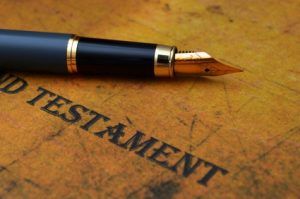
Who Can Be an Executor?
For legality reasons, no one under the age of 18 can become an executor unless the responsibility is handled through a parent or guardian of the minor. The executor does not have to be a financial expert or someone with legal experiences such as a lawyer. It can be a hired individual from a legal department or a long term friend of the family. The only real qualities that an executor must have are the ability to diligently follow the instructions of the will and do so honestly without being impartial.
What are the Duties of an Executor?
People, who leave behind fortunes with several sub fortunes such as property and other assets, may need an executor to help defend the integrity of their estate. An executor also has a list of other duties that they must carry out.
– Decide on Probate Court: The executor will decide whether or not a probate court procedure is needed in the event of a death. If there is a surviving owner, it will be passed on to them automatically. If there are no surviving owners, probate court may be the next step.
– Filing the Will: This step is mandatory in many states. The executor will have to file the will with the courts. The executor will also have to contact the heirs of the estate.
– Pay Expenses: When a person dies, if there are any debts or fees that they had the executor will be responsible for paying them off. Taxes are included in the fees and expenses that the deceased may have.
– Distribute Personal Property and Assets: The executor is responsible for distributing the personal property and assets of the deceased to the rightful heirs.
– Follow the Instructions: The will normally include instructions upon their death. These instructions are intended to be followed out by the executor or hired attorney.
– Set up Estate Account: The estate account refers to a bank account with all the money that is owed to the deceased. This money can come from dividends, paychecks, or any other forms of payment not received while the deceased was alive.
In the world of intellectual property, inventorship is a critical and often misunderstood concept. Determining…
When it comes to resolving business disputes, mediation offers a uniquely effective approach that goes…
Widerman Malek is excited to sponsor the Junior Achievement of the Space Coast Business Hall…
Beneficial Ownership Information (BOI) reporting under the Corporate Transparency Act (CTA) is back in effect…
We are excited to welcome attorney Jeff Smith to the firm’s Celebration office. Bringing over…
The IRS has announced its annual inflation adjustments for the 2025 tax year, bringing significant…